Michelle Blanchet on Preventing Polarization
Key Points
-
We’re missing the soul of civics.
-
We need to actually engage in “what could be?”
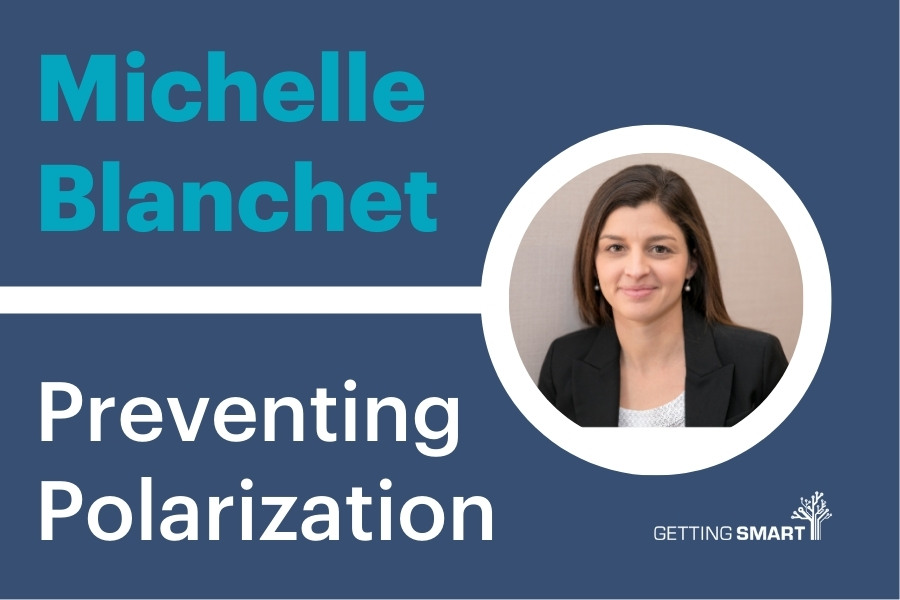
This episode of the Getting Smart Podcast is supported by the JFF Horizons Summit. Find out more at horizons.jff.org.
On this episode of the Getting Smart Podcast, Tom Vander Ark is joined by Michelle Blanchet, Founder & Director of the Educator’s Lab and author of Preventing Polarization: 50 Strategies for Teaching Kids About Empathy, Politics, and Civic Responsibility co-authored by Brian Deters.
Michelle is also serving as a Senior Fellow for our New Pathways campaign as she helps us to highlight and share stories around keeping sustainability and citizenship at the core of pathways.
Are we tolerant of the questions that students are asking?
Michelle Blanchet
Tom Vander Ark: I’m Tom Vander Ark, and you’re listening to the Getting Smart podcast. Today, we’re joined by Michelle Blanchet, the founder and director of the Educators Lab and author of Preventing Polarization: 50 Strategies for Teaching Kids About Empathy, Politics, and Civic Responsibility. Thank you for joining us, Michelle. You’re joining us from Switzerland, correct? How did you end up there?
Michelle Blanchet: Yes, thanks for having me on. We’ve actually lived here a few times. My husband happens to be Swiss, so it’s not a super exciting story—we’ve gone back and forth and have decided to settle here.
Tom Vander Ark: Michelle, you’re a veteran educator, change leader, and civics educator. When did polarization hit your radar, and how did you decide to address it?
Michelle Blanchet: Early on in my career, I taught civics in Virginia, which is, I think, a hotbed right now for a variety of reasons. When I left the classroom, it was because I wanted to do more to ensure education truly supports students. So, I started this journey as a consultant and worked more with professional learning, noticing that teachers had great ideas but often lacked support to materialize those ideas. Teachers usually have the best ideas for our students, so we wanted to find ways to help bring those to life.
That journey led me into the social startup world, where I saw spaces really explode in places like Madrid and D.C., with a lot of great insights coming from there. We wrote our first book, The Startup Teacher Playbook, which takes inspiration from the social startup world—and I say “social” because it’s more about purpose than profits. We started creating more holistic formats to help teachers and organizations think about change and implement their ideas.
As we did this, we noticed there were certain issues impacting students that often got neglected. Polarization is an urgent issue that affects students significantly, and while I didn’t initially intend to write about it, I felt compelled. Many civics tools and books are very traditional, focusing on what I call the “body” of civics—like the three branches of government. But they miss the “soul” of civics, which is why someone should care and what drives them to engage.
Tom Vander Ark: Post-pandemic, I’m back out visiting schools every week. Everywhere I go, school and system leaders tell me they’re dealing with polarization and tougher politics than ever. So, I have a two-part question: Is civics education part of the solution? And are you suggesting a different way of being a community leader, of running a school or system? Your book seems to advocate for civics education, but is it also a call for a new approach to leadership in schools?
Michelle Blanchet: Yes, absolutely. One thing that makes our book unique is that it’s not just for social studies teachers. We talk a lot about civic-mindedness and what any teacher can do to contribute to that. Leaders need to create the conditions for these things to happen. Of course, we need civics education, but we also need to accept that it’s controversial right now. For example, as soon as you scratch the surface of how things function, kids have questions. You start talking about the two-party system and elections, and soon they’re asking, “How do you run for office?” That can quickly evolve into questions about campaign costs, funding, and lobbying, and students may feel frustrated or outraged by what they learn.
I think the real challenge now is that many teachers feel they can’t facilitate these conversations because they might face backlash—from parents, school boards, or other sources. There’s this tension where people think, “I’d rather not engage in this because it might cause problems.” But that doesn’t serve our students well. Leaders need to help the school community understand that the classroom should be a low-stakes environment where students learn to communicate, tolerate different perspectives, explore issues, and practice critical thinking. It’s essential for civics education, but we need to create conditions where teachers feel trusted to facilitate those experiences.
Tom Vander Ark: Your first two chapters of Preventing Polarization beautifully describe this, Michelle—equipping students with strategies to question their world and encouraging them to keep asking questions. I love that sentiment. But how can we do that without it becoming explosively political? How can teachers create this environment without it becoming overly political, and are there ways for school administrators to support teachers so students can ask tough questions without things spinning out of control?
Michelle Blanchet: That’s the thing. I’ve taught civics, sociology, and history, and you can’t control what’s happening in the world. Kids come in with questions about current events, and they need to talk about what’s going on because they’re experiencing it. Schools often say they promote curiosity, which involves asking questions. But then there’s a tolerance issue: Are we tolerant of the questions kids ask? Are we patient with them? Are we embracing them? There’s sometimes a disconnect between promoting curiosity and tolerating the questions that come with it.
Accepting that teaching is sometimes messy is important. We don’t always know what questions kids will ask, and that’s okay. We need to communicate to our school communities that no one is trying to push a specific view onto students—this isn’t about indoctrination. Often, this comes down to communication. If parents understand that students are going to ask questions about current events and engage in discussions, it might lower the tension. Kids are mature enough to handle these conversations, and we can teach them how to be responsible, civil, and thoughtful in their discussions. Better communication about why these conversations happen might help reduce hostility toward it.
Tom Vander Ark: Chapter 3 is about humility. It strikes me that as the world becomes more complex and interconnected, adults and teachers especially need intellectual humility—acknowledging what we don’t know. So maybe part of the answer to preventing polarization is to express intellectual humility and avoid pushing a particular viewpoint, instead inviting dialogue around great questions.
Michelle Blanchet: Absolutely. Ego often gets in the way of conversations, especially in tense times. There’s a tendency for people to want to be “right,” but that’s not the point of many discussions. I do a lot of work with the Sustainable Development Goals, which are huge, complex issues that don’t have clear answers. None of us can “get it right” with these big systemic problems, which is why we need humility. We need to learn from each other and engage thoughtfully, recognizing that we don’t have all the answers. Practicing humility can lead to more productive conversations.
Tom Vander Ark: We often talk about a school inviting students to do work that’s important to them and their community, which requires humility and fewer “right” answers. Chapter 4 of your book discusses consuming information cautiously and highlights the importance of civic and digital literacy. How do you teach civic and digital literacy in today’s world of constant information?
Michelle Blanchet: I don’t have a silver bullet solution, but I do think we need to accept that social media isn’t going anywhere. When we talk about technology in many places, we’re still focused on digital citizenship, but we need to consider where young people get their information. They’re learning a lot from platforms like TikTok. I’m older, so I use Facebook and Twitter, but kids are on other platforms, and there’s a divide in how we get information. Instead of avoiding these platforms, we need to accept that technology continues to evolve. It’s interesting—lately, I see chatGPT everywhere, which surprised me because we’ve known about AI for a while. Technology has disrupted everything, including civics and civic engagement. We need realistic conversations about how to bridge this divide to support students. We know misinformation is an issue, so we have to think about what we can do to help.
Tom Vander Ark: Chapter 7 is about promoting collective leadership, and I love this idea. When most people think about civics, they don’t think about leadership development or inviting young people to contribute. Why is that important, and what’s the link to civics?
Michelle Blanchet: I included this because it’s easy for people to think, “I’m not a leader; I’m not a politician; my vote doesn’t matter.” I hear that a lot from students. But if we want systems change, we each have value and can each do our part, whether through work, lifestyle, or other means. We often have this “superhero” syndrome, where one person is supposed to save the world, but that’s not realistic. We’re a community, and everyone contributes. Helping kids understand that they matter, their actions matter, and they have value is crucial to being a good citizen. This goes back to the soul of civics—understanding not just how things function but also your role in shaping the world.
Tom Vander Ark: The last chapter is about changemaking, which seems influenced by your background with Ashoka. Why and how should we encourage young people to become changemakers?
Michelle Blanchet: I’ve done work with Ashoka, and they inspire me because they’re focused on social entrepreneurship and inspiring everyone to be a changemaker. Many people don’t naturally see themselves as changemakers. I sometimes run an exercise with kids, asking them to define a changemaker, and they usually say something like, “someone who makes a difference.” Then I ask if they feel like changemakers, and most say no. I think we need to help young people understand how they can create change. In education, we often give kids problems to solve, which is fine, but they also need to learn how to identify a problem and take action. Every young person will encounter challenges in life, and those are opportunities if they know how to act. Policies and systemic issues, like equity, sustainability, and public health, are at the heart of making change, and business can also be a way to create change.
Tom Vander Ark: I’d love to hear your vision for an ideal high school with a civics education that culminates in changemaking. For example, there’s a rural Kansas school, Baser Linwood, where ninth graders in the Innovation Academy were invited by the city council to help design a new city park. These students broke into committees, got to know the city council members, studied the community’s history, and used CAD software to design the park. They ran polls and focus groups, and every time I visit, the students are so excited about their work and articulate about how they engaged with their community. They know they’ve done work that will mark their community and make it better for the next 20 years. For me, that’s a beautiful picture of what civics education could be and a vision of changemaking and difference-making. Do you have a picture of what your version of an ideal high school might look like?
Michelle Blanchet: If it’s okay, I actually picture more what professional learning or teacher training would look like to support civics education. I actually never had civics training. I was a social studies teacher, but my degrees are in anthropology and international relations, and then I got my teaching certificate. I remember being shocked by the Praxis exam, which you have to pass to become a social studies teacher in some states, like New Jersey and Virginia. I took it, and it was just memorization. I was kind of shocked because if you want teachers to do something different, why is this the requirement?
For me, what I’d love to see is more on transformational leadership in teacher training and professional learning. Courses on topics like negotiation, soft skills, emotional intelligence, and managing conversations would have been so helpful in the classroom. I also work a lot with the social startup world, so I’m into agility and human-centered design. I would have loved to learn processes like this beforehand, so I could design learning experiences tailored to my students and my community.
I also wish I had a course on creating community partnerships. It’s amazing how many museums or local organizations are doing incredible things, but it takes effort to create opportunities to get students out of the classroom and experiencing something new. I remember being exposed to different pedagogies—like project-based learning (PBL)—and I appreciated classes that taught me how to run debates, do simulations, or facilitate experiences. I feel like kids learn best when they experience things, so I wanted to be able to provide that hands-on learning.
I was also lucky with my student teacher. He gave me books like Lies My Teacher Told Me, and he had a lesson where he brought in five different textbooks covering the same historical event, John Brown and Harpers Ferry. The students saw that most textbooks portrayed John Brown as a crazy man, but when my student teacher brought in primary sources, they got a fuller story. We had an amazing conversation about why textbooks portrayed it that way, and in hindsight, I realize how lucky I was to have a mentor like that. I hope all civics teachers get training on facilitating conversations, creating meaningful provocations, and providing hands-on learning experiences.
Tom Vander Ark: I love that your vision for a great school starts with supporting teachers, empowering them to create those experiences for students. That’s such an important foundation.
Michelle Blanchet: Absolutely, because if we empower teachers and equip them well, we don’t have to worry about what’s happening in classrooms. They’ll naturally create powerful learning experiences.
Tom Vander Ark: You had another book come out during the pandemic called The Startup Teacher Playbook, which was about equipping teachers to bring an agile mindset to the classroom. Give us an overview of that book—who’s it for, and how does it help teachers?
Michelle Blanchet: Sure. My co-author and I were both teachers who felt frustrated with professional learning. We didn’t want someone just telling us what to do; we wanted someone to work with us to design things for our students. One thing that inspired us from the startup world was the business model canvas. It asks people guiding questions to see if an idea has value, and it was incredible to see people with zero business background discuss a problem, turn it into a possibility, and put it all together. The canvas lets you think holistically about an idea quickly without wasting time, unlike a traditional business plan, which can feel like writing a research report. We thought, “Why don’t we have something like this in education?”
Teachers have great ideas, but they need a space and time to test them out because what works for one class might not work for another. So, we created this tool to provide that space for teachers to address a pain point and experiment with new approaches. It’s fast and flexible, and it allows teachers to collaborate, adapt, and try new things in their classrooms without needing a consultant.
Tom Vander Ark: We’re talking to Michelle Blanchet, author of The Startup Teacher Playbook and more recently Preventing Polarization. Michelle, where can people learn more?
Michelle Blanchet: You can find more about our work at theeducatorslab.io.
Tom Vander Ark: For Preventing Polarization, you can go to preventingpolarization.com, right?
Michelle Blanchet: Yes, that’s correct—preventingpolarization.com.
Tom Vander Ark: Michelle, we appreciate your advocacy for active civics, collective leadership, and changemaking. We love your vision for empowering teachers to make that happen for kids. Thank you for staying up late to join us from Switzerland.
Michelle Blanchet: Thanks so much for having me on.
Tom Vander Ark: And thanks to Mason Pasha, our producer, and the entire Getting Smart team for making this possible. Until next week, keep learning, keep leading, and keep innovating for equity.
Links:


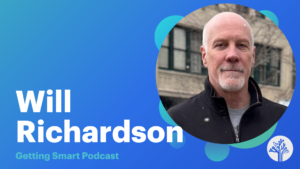


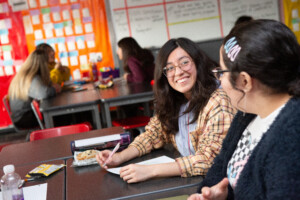
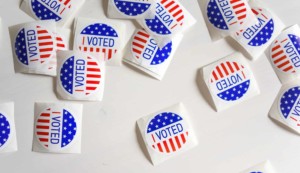
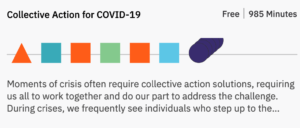
0 Comments
Leave a Comment
Your email address will not be published. All fields are required.